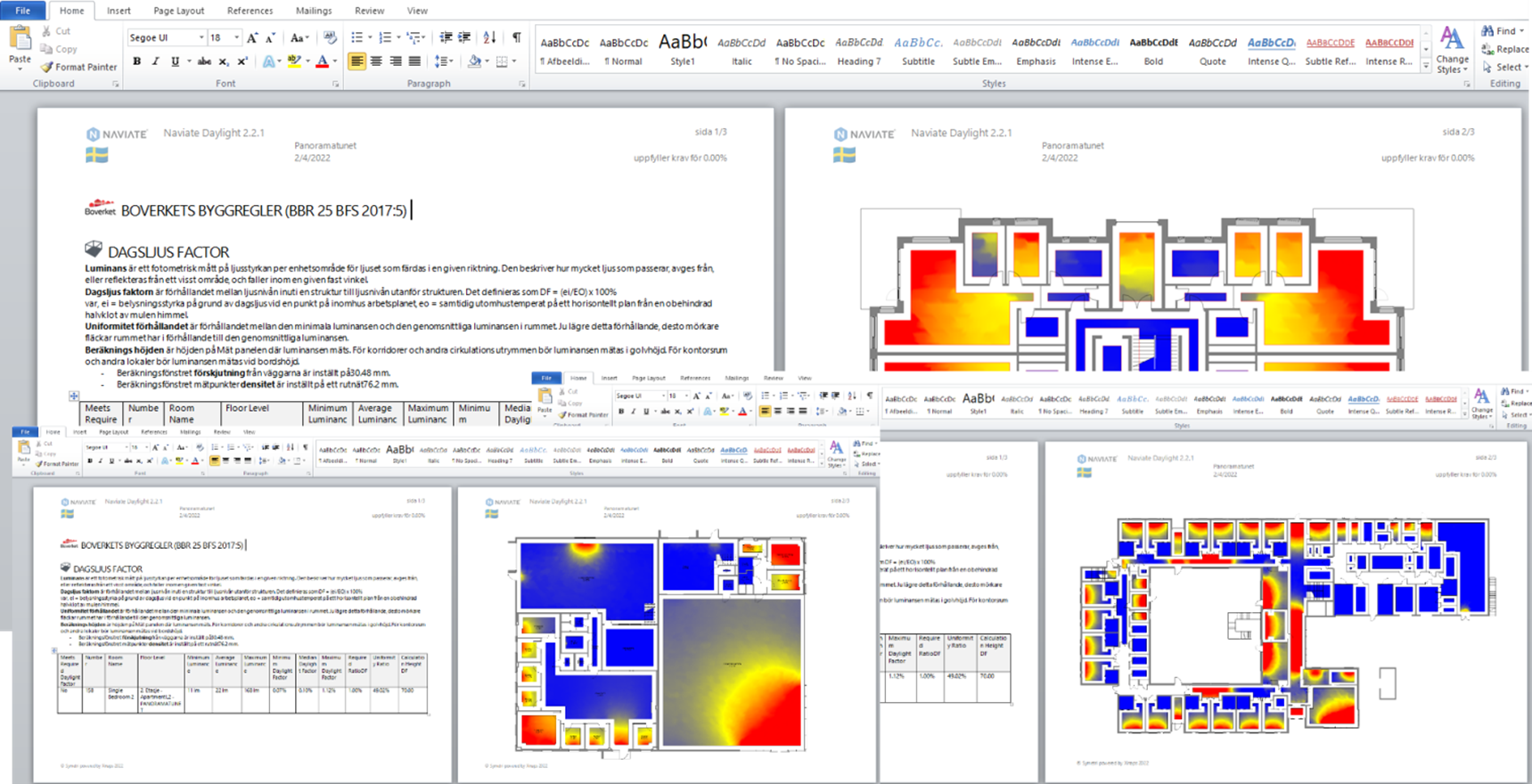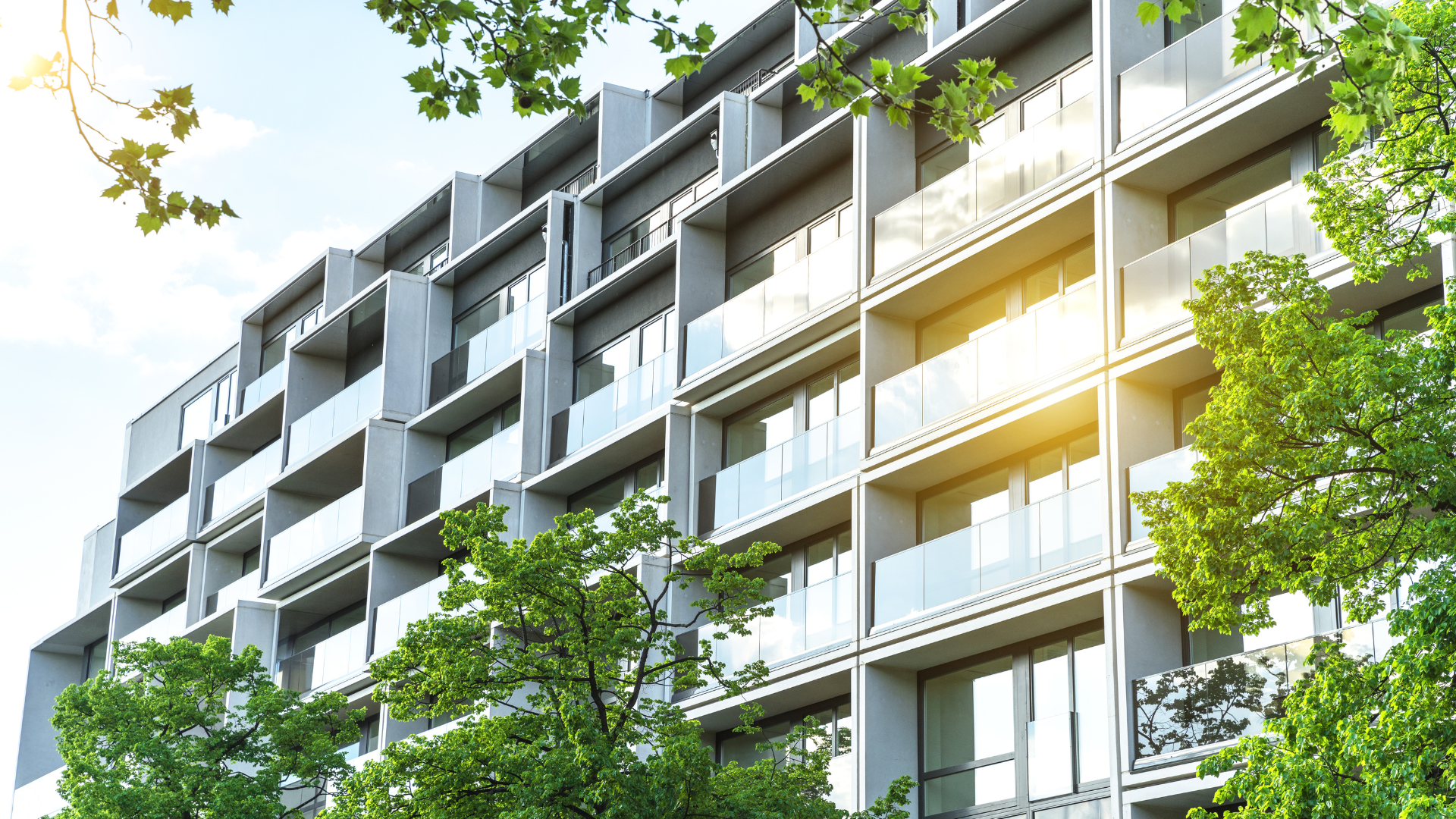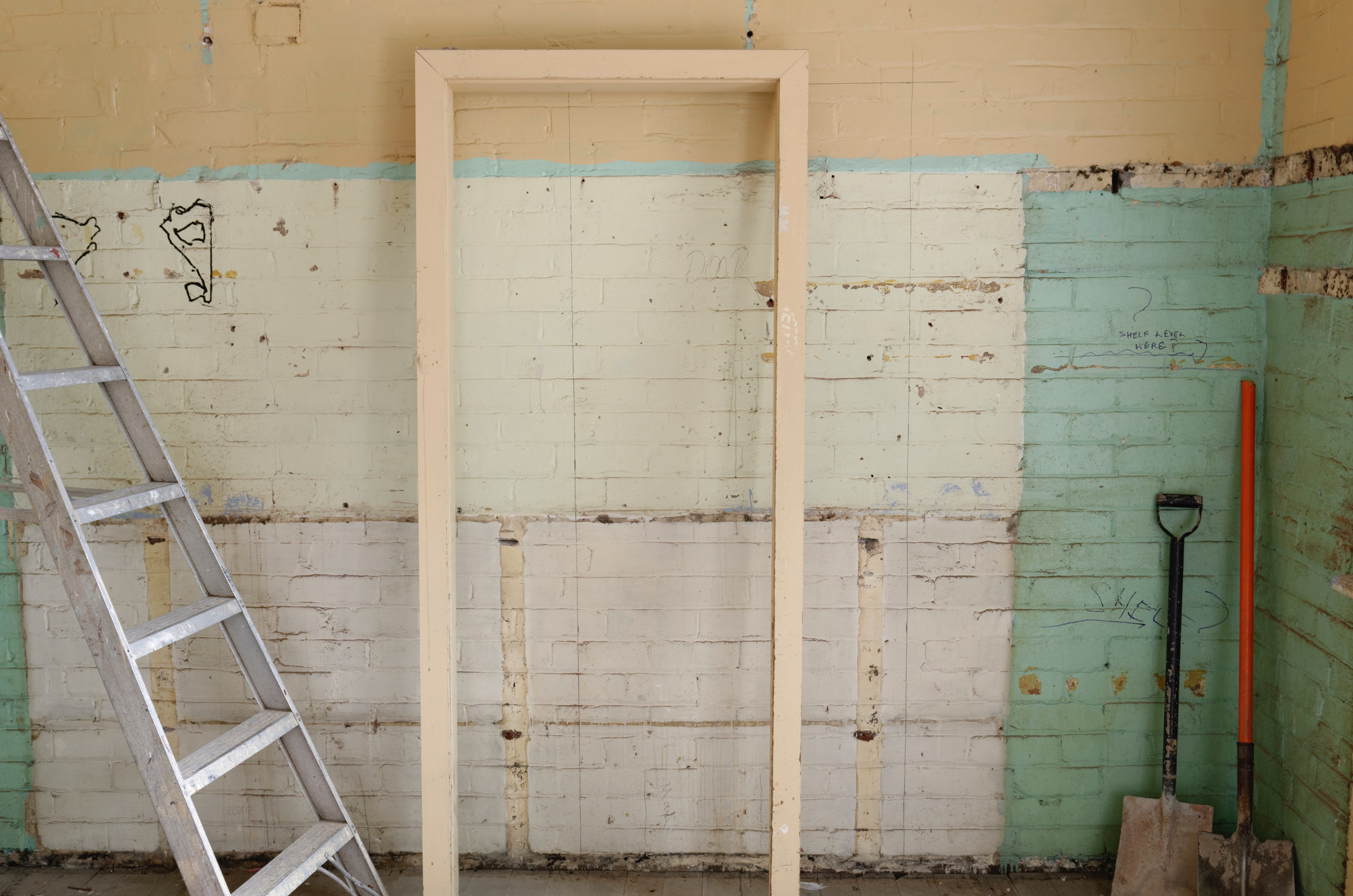As an Architect, you have many considerations to take in designing a building. One important part is daylight; placement of windows, indoor lighting and other lighting sources. In this blog post we will dive into what daylight analysis is, how you can get an overview of your design options and how to incorporate it into your BIM model in Revit.
Automated – Integrated - Optimised
Naviate Daylight brings Revit to a new higher performance level by providing automated daylight checking and decision support for your integrated BIM design.
What is daylight analysis?
If you look at the definition, it says something like this:
The amount of daylight received in an internal space can be analysed by measuring illuminance on a grid or undertaking a daylight factor calculation. Computer programs can allow an Architect or Engineer to quickly calculate benefits of a design… The source of all daylight is the sun.
Naviate is making it possible for you to do all this inside your Revit application. We have implemented both the simplified method; Daylight Ratio, and the daylight simulation part that includes the climate solar data; Daylight Factor. Below you can read more about what they do and how you can use them in your work in Revit.
Want to see it live? Register for a free webinar here.
Daylight Ratio
Daylight Ratio automates the calculation of Window to Floor and Window to Wall ratios of each room in the project. The calculation methods and results vary depending on the selected calculation standards.
You will also get various information about elements "involved" in the calculations, such as Rooms, Windows, Curtain Walls, and objects surrounding the building.
Here’s an example of how the Daylight Ratio can look like for Window to Floor, in this case using the Swedish local building regulations.
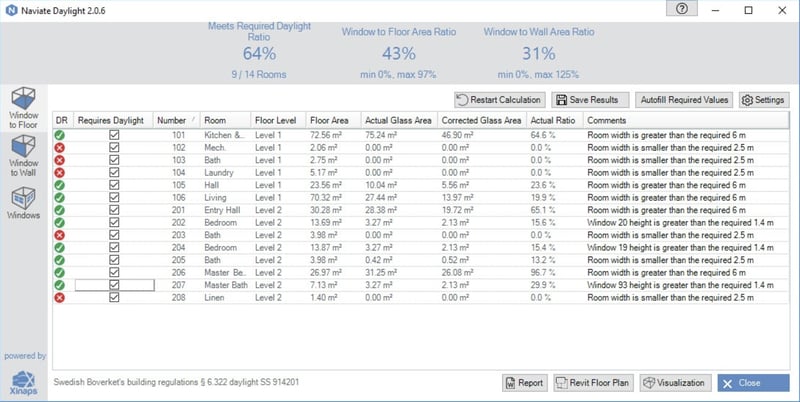
Daylight Factor
Moving on to Daylight Factor, you get automated the calculations of the Daylight Factor, Luminance and Uniformity Ratio of each room in the project.
In addition, various information about elements "involved" in the calculations like Rooms, Windows, Curtain Walls, and objects surrounding the building is created.
Here's an example of how the Daylight Factor daylight map is visualised.
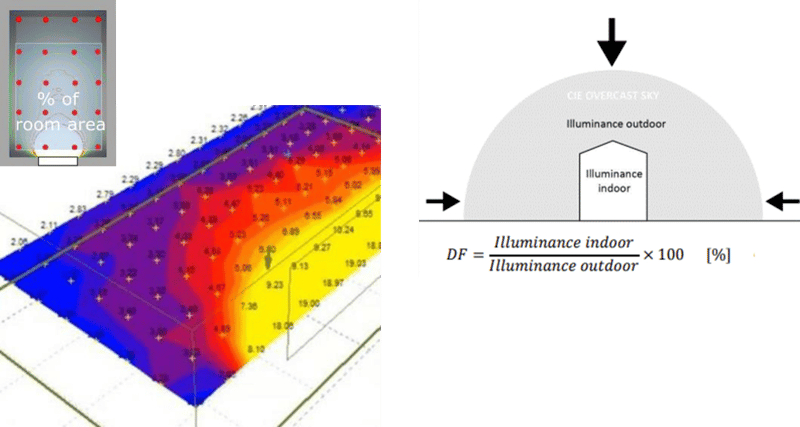
Daylight Performance Indicators
As for most regulations, different countries have different regulations for daylight requirements in buildings. For the moment we support the countries below with specific regulations in addition to the European standard EN 17037, and worldwide green building certification program certification LEED 2009 EQc 8.1 and worldwide sustainability assessment method BREEAM.
Naviate Daylight regulations supported
- Norwegian regulations: Byggteknisk forskrift § 13-7. Lys
- Swedish regulations: Boverkets byggregler § 6.322 Dagsljus (SS 914201)
- Danish regulations: Bygningsreglementet § 379 Dagslys
- Finnish regulations: Ympäristöministeriön asetus asuin-, majoitus- ja työtiloista 5 § Asuin-, majoitus- ja työtilan ikkuna
- Dutch regulations: BRISbouwbesluit § 3.11 Daglicht (NEN 2057)
- Worldwide green building certification program from U.S. Green Building Council (USGBC) LEED 2009 EQc 8.1
- European Committee for Standardization (CEN/TC) 169 EN 17037:2018 Daylight in buildings
- Worldwide sustainability assessment method BREEAM Natural light
Below is a visual presentation of regulation requirements.

Radiance as the engine for calculations
Naviate Daylight is using Radiance as the engine for calculations. This is a well-known suite of programs for the analysis and visualisation of lighting in design. The primary advantage of Radiance over simpler lighting calculation and rendering tools is that there are few limitations on the geometry or the materials that may be simulated.
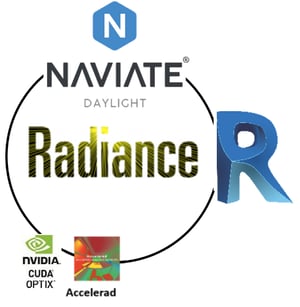
Want to know more?
- Join our webinar on the latest news in Naviate Daylight September 11th. Register here (it's free)
- Download a free trial of Naviate Daylight here
- Read more about Radiance as calculation engine here
- Read more about the Norwegian daylight regulations here
- Read more about the Swedish daylight regulations here
- Read more about the Danish daylight regulations here
- Read more about the Dutch daylight regulations here
- Read more about the worldwide building certification program LEED here
- Read more about the European standard for daylight here
- Read more about the worldwide sustainability assessment method BREEM for natural light here
Anything you would like to know more about? Leave us an comment!


